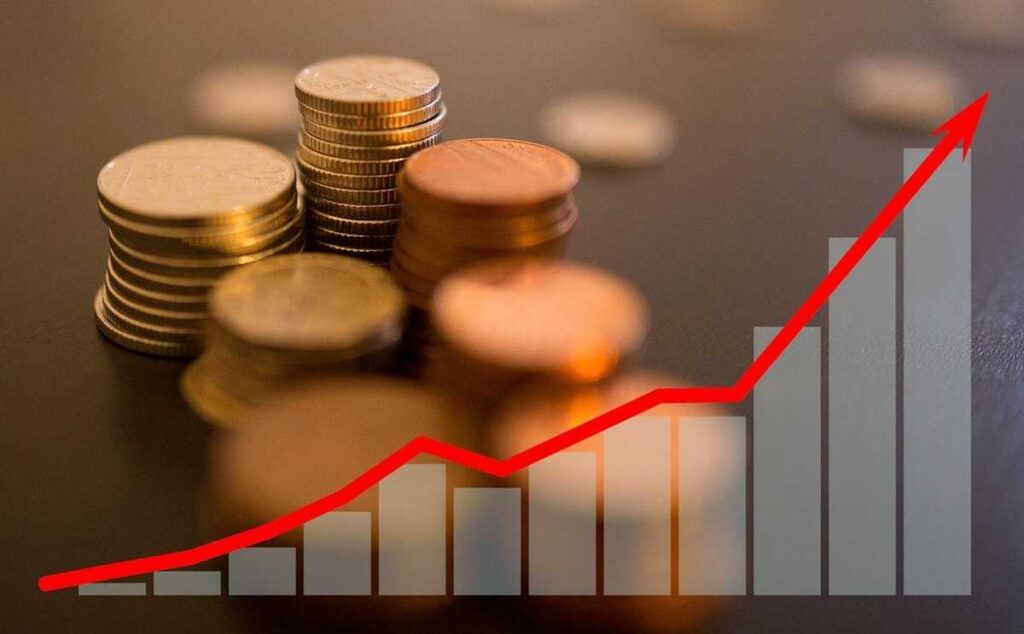New Ways to Save Money and Beat Inflation

Inflation has become a buzzword on the internet recently, with reports showing that it is hovering at 8%, the highest level in the United States since the early 1980s.
High inflation affects everyone, but it is harder on those living paycheck to paycheck. As prices of commodities rise and the purchasing power of money dwindles, households struggle to make ends meet, let alone save money.
Economists project that inflation will likely remain high in the coming quarter, meaning that the cost of living will continue to outpace the saving rate and wage growth. However, since saving money is important, you cannot surrender to rampant inflation and sit by as your bills get out of control.
Before the inflation beast is tamed, we present you with useful strategies you can take to cushion yourself from its financial blows and protect your savings.
1. Put savings first in your budget
Under normal circumstances, people often place savings after caring for necessary expenses. Savings are often planned for when one realizes their income is almost depleted.
It is vital to plan with your monthly, weekly, or daily wage to determine how much you can reasonably save, then save that money before spending your income.
You can find a way to live within the remaining amount. So, plan your life and living standards based on disposable income. How much should you save? This figure depends on total income, saving goals, and household size.
One strategy that has worked for many people is the 50/30/20, where you pledge to save 20% of your monthly income. However, this may not be realistic for those living from hand to mouth. So, examine your expenses and cut unnecessary ones out so you can direct this money to savings accounts.
Take advantage of various budgeting apps to track your expenses and improve your savings.
2. Focus on becoming debt free through spending priorities
It is common to plunge into debt during inflation because we are trying to keep up with the Jones and our previous standard of living. It is vital to accept that inflation is real and directly affects your income. So, allocate spending while you intentionally cut down the amount your family spends on every category, enabling you to reduce impulse buying.
You could prioritize getting out of debt by paying down your credit card balances and other debts. Be determined to avoid taking debt and instead buy using cash. This way, you can improve your chances of saving money in the long run. Debts often accumulate huge interest, thus affecting your credit score and goals of attaining financial freedom.
If you have pending personal loans or credit card debts, you can focus on paying them before saving. Alternatively, you can consolidate your debts to have a clear picture of what you are dealing with and then start paying them.
The faster you get out of debt by prioritizing your expenditure, the sooner you can focus on saving for future turbulent times.
If you have two cars, the family can use one car to go to work or school. Or you could take a bus or subway to work and back. You may be shocked at how much you can save by prioritizing expenditure.
3. Consider a side hustle
In reality, purchases and expenditures will continue to be necessary for sustaining life, so you may need to increase your income to deal with rising inflation. One way to increase your income is to get a side hustle from your regular job.
Investing time on a side gig will help you get the additional money you can spend on things you may have scrapped off the tight budget. Some practical side gigs in the United States include:
- Dog-walking
- Reselling clothes and art online
- Freelance writing
- Virtual Assistant
- Tutoring
- Filling survey
Take up a side hustle that meets your interests. It should be something you love doing; otherwise, it will become a chore. Besides the money you will earn, you need to enjoy the side gig; be passionate about it.
4. Target long-term savings by investing in bonds
It is a worthy goal to save short-term cash like emergency funds in your savings accounts; however, inflation has the reputation of devaluation cash. Therefore, investing your money where it is not affected, such as in treasury bonds, is important.
This strategy is ideal for individuals with idle cash on the sideline. A treasury bond is excellent if you can take risks and make money through high returns in a year or more.
Treasury bonds are like certificates of deposit, guaranteeing that you will reap returns higher than the inflation rate after a year. The government’s review of inflation data and changes in the global supply chains may lower prices for goods, thus creating ways to optimize savings.
5. Look for cheaper alternatives when shopping
During this inflation, grocery prices have skyrocketed, creating holes in consumers’ pockets and eating into their savings. For instance, some states saw the prices of eggs rise by 33.1%, and other essentials like milk and butter followed at a close distance.
You can save money by comparing brand prices to settle for cheaper options in your area. Look for cheaper brands and source food from local sellers at a relatively low price. Those small price differences often accumulate a lot of money!
Moreover, you can substitute some ingredients you are used to with cheaper alternatives. For instance, can you use cooking oil in place of butter? You may not realize the impact of price comparisons, but over time this practice pays. You will take care of your family and still retain some money for savings.
Final thoughts
Inflation is here with us; instead of being terrified, we can take practical actions to cope with it. You can save money despite the rising cost of basic commodities by taking practical steps such as cutting down expenditures.
You can also change your standard of living to deal with these challenging circumstances. We are not saying you eat one meal a day, but if you can, it is still okay; just avoid unnecessary expenses. Invest in bonds if you have extra cash and avoid using credit cards that would hinder your debt-free goal.
Company Bio: Reclaim Dollar is a financial blog that assists people in making smart money decisions by taking control of their personal finances. At Reclaim Dollar we educate our users in making wise decisions when it comes to choices like making money, saving money, debt, loan, Banking, and more.

Pranab Bhandari is an Editor of the Financial Blog “Financebuzz”. Apart from writing informative financial articles for his blog, he is a regular contributor to many national and international publications namely Tweak Your Biz, Growth Rocks ETC.





